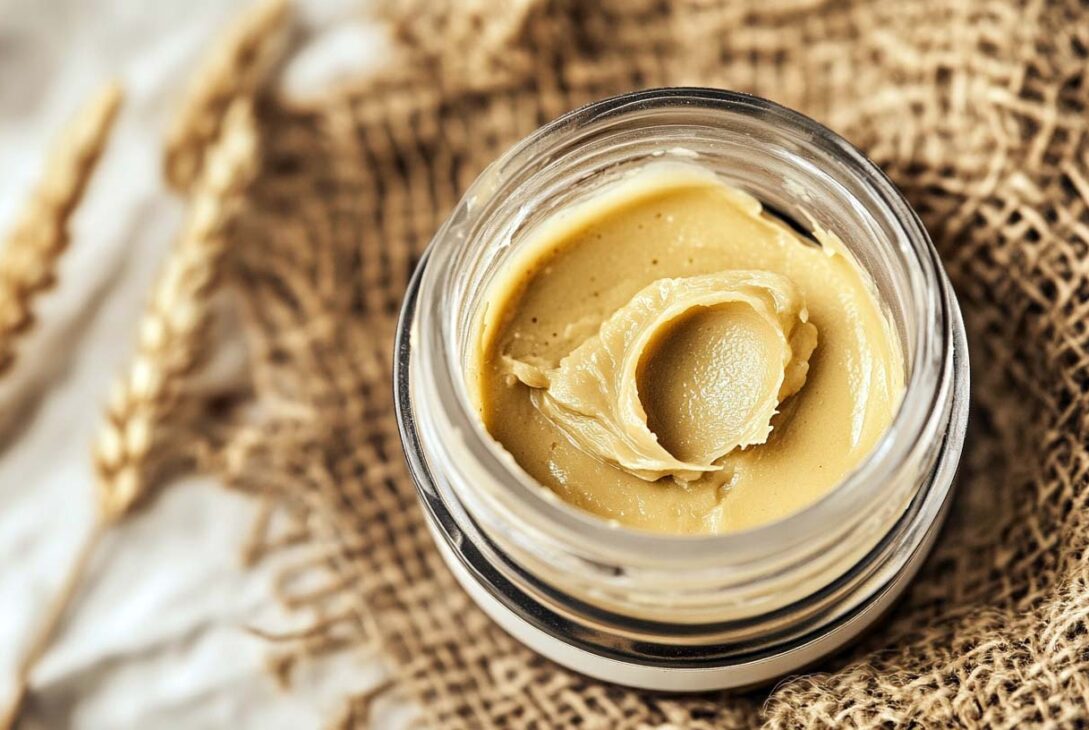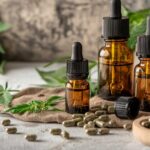Introduction to CBD and Skin Health
The conversation surrounding CBD (cannabidiol) has garnered remarkable interest, particularly when considering its potential benefits for skin health. As a non-psychoactive compound derived from the hemp plant, CBD is increasingly seen as a promising natural alternative for those grappling with chronic skin conditions such as psoriasis and eczema. Here, we explore how CBD interacts with skin health, the therapeutic effects it offers, and practical tips for incorporating it into skincare routines.
Understanding CBD and the Endocannabinoid System
To grasp how CBD influences skin health, it’s essential to first understand the role of the body’s endocannabinoid system (ECS). The ECS is a complex biological system comprised of receptors, endocannabinoids, and enzymes, playing a vital role in regulating numerous physiological processes, including inflammation and skin health.
- How it Works: CBD primarily interacts with CB2 receptors located in the immune system and skin. This interaction prompts a response that can help mitigate inflammation and support various skin functions.
CBD and Psoriasis
Psoriasis is a chronic autoimmune disorder characterized by the rapid proliferation of skin cells, leading to the development of thick, red, scaly patches. Let’s delve into how CBD can aid in the management of psoriasis:
Reducing Inflammation
One of CBD’s most notable benefits is its anti-inflammatory properties. Research indicates that CBD can moderate immune response, which is crucial for managing psoriasis. Specifically, CBD:
- Suppresses Pro-inflammatory Cytokines: Notably, it reduces the levels of cytokines such as TNF-α, IL-6, and IL-17, which are responsible for the inflammation characteristic of psoriasis.
- Enhances Skin Hydration: By regulating inflammatory processes, CBD may contribute to better skin hydration and overall health.
Managing Symptoms
Topical applications of CBD, such as balms and lotions, have shown potential in alleviating psoriasis symptoms:
- Relief from Itchiness and Pain: A study published in Skin Appendage Disorders observed that a CBD-infused shampoo significantly reduced the severity of scalp psoriasis within weeks.
- Keratinocyte Regulation: By influencing the proliferation rate of keratinocytes, CBD helps manage the rapid skin cell turnover that defines psoriasis.
Patient Experiences
Clinical trials and anecdotal reports offer additional support for the effectiveness of CBD in treating psoriasis. Patients have reported marked improvements in:
- Plaque Thickness: Thinner plaques lead to less discomfort and a more manageable condition.
- Reduced Skin Scaling: A lessening of visible flakes enhances not only skin health but also boosts confidence.
CBD and Eczema
Eczema, or atopic dermatitis, manifests as inflamed, itchy, and red patches of skin. Understanding CBD’s role in ameliorating these symptoms can be beneficial for many:
Anti-Inflammatory Effects
CBD’s capacity to reduce inflammation extends to eczema as well. It works by:
- Inhibiting Inflammatory Cytokines: Research in The Journal of Clinical Investigation found that CBD can significantly lower the production of cytokines that trigger eczema flare-ups.
Moisturization and Healing
CBD-infused topicals also excel in enhancing skin moisture and integrity:
- Restoring Moisture: With its hydrating properties, CBD can help soothe dry and cracked skin commonly associated with eczema.
- Antioxidant Protection: By shielding the skin from environmental damage, CBD helps prevent exacerbation of eczema symptoms.
Supporting Overall Skin Health
Interestingly, CBD plays a pivotal role in managing oil production—a consideration for many whose eczema is coupled with acne. Lowering sebum production can lead to:
- Improved Skin Clarity: This dual action can assist those facing both eczema and acne, promoting clearer, healthier skin.
How to Use CBD for Skin Conditions
Incorporating CBD into your skincare regimen may be easier than you think. Here are some practical guidelines:
Topical Applications
For optimal results, CBD is most effective when applied directly to the skin. Here’s what to consider:
- Forms of Application: Available products include creams, balms, serums, and shampoos. Each serves a specific purpose and can be used for targeted areas.
Choosing the Right Product
Given that the CBD industry often lacks stringent regulations, selecting high-quality products is crucial. Here are some tips:
- Look for Third-Party Testing: Ensure that the product has been tested for potency and purity by an independent lab.
- Check for Ingredients: Choose products free from irritating or harmful additives to avoid adverse reactions.
Risks and Considerations
While CBD offers promising benefits, a few considerations should be kept in mind:
Regulation Concerns
The variability in product quality can pose risks:
- Potential Contaminants: Inadequately regulated products might contain unwanted substances, such as THC or allergens.
Possible Adverse Effects
CBD is generally well-tolerated, but being mindful of your personal sensitivities is essential:
- Allergy Watch: Always perform a patch test or consult with a dermatologist before applying a new product to your skin.
Conclusion
CBD represents a fascinating and promising adjunct therapy for individuals dealing with skin conditions like psoriasis and eczema. Its anti-inflammatory, moisturizing, and antioxidant properties stand out as valuable assets in enhancing skin health and alleviating discomfort.
Key Takeaways:
- CBD effectively reduces inflammation by regulating cytokines, leading to improved symptom management.
- Topical CBD applications can relieve itchiness and improve the overall appearance of skin affected by psoriasis and eczema.
- Careful selection of high-quality CBD products, supported by third-party testing, is crucial for ensuring effectiveness and safety.
As research continues to explore the full potential of CBD in skincare, its role as a natural solution is becoming increasingly validated.
Actionable Tips:
- Consult Your Healthcare Provider: Before embarking on a new treatment path with CBD, speak with your healthcare provider to navigate risks and ensure safety.
- Prioritize Quality: Invest in reputable CBD products that emphasize transparency and safety in their formulation.
- Start with Topicals: For targeted relief, consider using topical CBD products directly on affected skin areas.
- Keep Track of Your Progress: Monitoring your symptoms can help you adjust your approach effectively, ideally under a healthcare professional’s guidance.
Incorporating CBD into your skincare routine could lead to significant improvements in managing conditions like psoriasis and eczema, ultimately enhancing your skin health and quality of life.





















